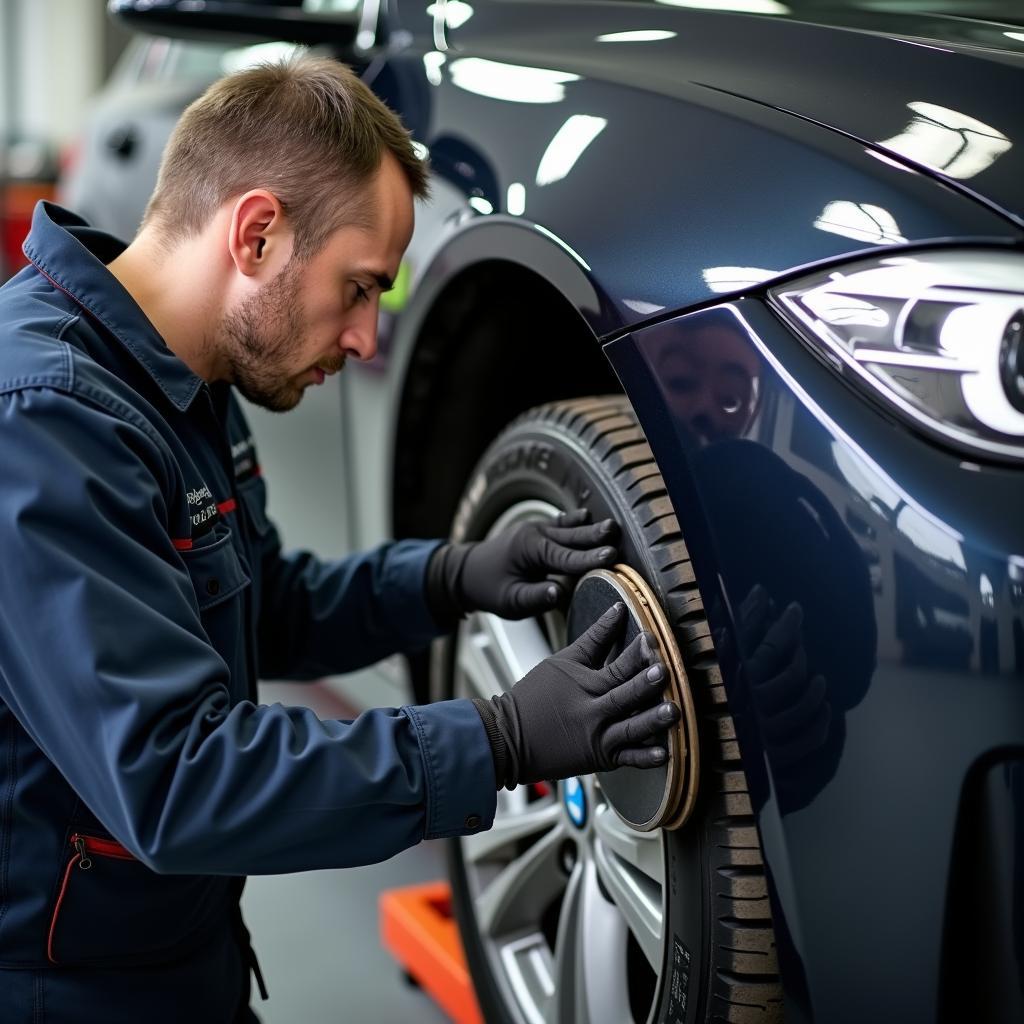German Motor Car Service is more than just routine maintenance; it’s an investment in preserving the precision engineering and performance that define these vehicles. Whether you own a BMW, Mercedes-Benz, Audi, Porsche, or Volkswagen, understanding the nuances of German car servicing is key to enjoying a smooth, reliable, and exhilarating driving experience. This guide delves into the intricacies of maintaining these high-performance machines, covering everything from routine checks to specialized repairs.
Maintaining a German car requires a deep understanding of its complex systems. Regular servicing not only keeps your vehicle running smoothly but also prevents costly repairs down the line. From oil changes tailored to high-performance engines to intricate electronic diagnostics, understanding the specific needs of your German car is essential. This guide provides comprehensive insights into keeping your German vehicle in peak condition. After the introduction you can find the first of two internal links to related content within our website. See service car for mercedes.
Why German Motor Car Service Matters
German cars are renowned for their performance, advanced engineering, and sophisticated technology. However, this complexity necessitates specialized care. Regular German motor car service, performed by trained technicians familiar with these intricate systems, is crucial for ensuring optimal performance, longevity, and safety. Neglecting regular maintenance can lead to premature wear and tear, costly repairs, and diminished driving enjoyment.
Understanding Your German Car’s Specific Needs
Different German makes and models have unique service requirements. While some may share common service intervals, others require specialized procedures and parts. Consulting your owner’s manual and choosing a reputable specialist familiar with your specific model is essential for appropriate German motor car service. This tailored approach ensures that every component, from the engine to the advanced electronics, receives the attention it deserves.
What are the common service intervals for German cars? Typically, German cars require servicing every 10,000 to 15,000 miles, or annually, whichever comes first. However, specific intervals can vary based on the model and driving conditions.
Finding a Qualified German Motor Car Service Specialist
Choosing the right service provider is paramount for maintaining your German vehicle. Look for a specialist with experience working on your specific make and model. ASE-certified technicians and specialized shops often have the necessary expertise and equipment for diagnosing and addressing the complexities of German engineering. Don’t hesitate to ask about their experience, certifications, and the types of parts they use. Genuine parts are often crucial for maintaining the integrity and performance of your vehicle.
Key Considerations When Choosing a Service Provider
- Experience and Expertise: Ensure the technician or shop has a proven track record of working with German cars.
- Specialized Equipment: Modern German cars require advanced diagnostic tools. Ensure the shop has the necessary equipment.
- Genuine Parts: Using original equipment manufacturer (OEM) or high-quality aftermarket parts is crucial for preserving performance and reliability.
- Customer Reviews: Online reviews and testimonials can offer valuable insights into the quality of service and customer satisfaction.
How can I find a reputable German car service specialist near me? Online directories, forums dedicated to German car owners, and local car clubs can be excellent resources for finding reputable service providers in your area.
Common German Motor Car Service Issues
While German cars are engineered for performance and durability, certain issues can arise. Understanding these common problems can help you be proactive in their prevention and address them effectively.
Addressing Common Problems Proactively
- Electrical Issues: Complex electrical systems can be prone to malfunctions. Regular checks and prompt diagnosis are crucial.
- Oil Leaks: High-performance engines can sometimes experience oil leaks. Addressing these promptly can prevent more significant damage.
- Brake System Issues: Maintaining the braking system, including regular pad and rotor replacements, is crucial for safety and performance.
- Cooling System Problems: Overheating can cause severe engine damage. Regular coolant flushes and checks are essential.
What are some signs of a failing cooling system in a German car? Common signs include overheating, coolant leaks, low coolant levels, and a sweet smell coming from the engine compartment.
“Regular maintenance is the key to enjoying the performance and longevity of your German car. Don’t wait for problems to arise; address them proactively,” advises Hans Schmidt, Master Technician at Bavarian Autohaus.
Maintaining Your Investment: Long-Term Care for Your German Car
German motor car service is not just a one-time event; it’s an ongoing commitment to preserving your vehicle’s value and performance. By following a comprehensive maintenance schedule and addressing issues promptly, you can enjoy years of trouble-free driving.
Tips for Maximizing the Lifespan of Your German Car
- Follow the Recommended Service Schedule: Adhering to the manufacturer’s recommended service intervals is crucial for preventing problems and maintaining optimal performance.
- Use High-Quality Fluids and Parts: Using the correct fluids and genuine or high-quality aftermarket parts ensures the proper functioning of your vehicle’s systems.
- Address Issues Promptly: Ignoring minor issues can lead to more significant and costly repairs down the line.
- Store Your Car Properly: Proper storage, especially during extended periods of non-use, can prevent damage and maintain its condition. You can find more information about specific models on our site. Here is a page regarding the theo klein interactive service car station engine playset.
“Think of German motor car service as an investment, not an expense. Regular maintenance protects your vehicle’s value and ensures a superior driving experience,” adds Dr. Inge Müller, Automotive Engineer specializing in German vehicles.
Conclusion
German motor car service is paramount for preserving the performance, longevity, and value of these sophisticated machines. By understanding the unique needs of your German vehicle, choosing a qualified specialist, and following a proactive maintenance schedule, you can ensure years of driving enjoyment and avoid costly repairs. Investing in proper German motor car service is an investment in the ultimate driving experience.
FAQ
-
How often should I service my German car?
Typically, every 10,000 to 15,000 miles, or annually. Consult your owner’s manual for specific recommendations. -
What are the benefits of using genuine parts?
Genuine parts are designed specifically for your car, ensuring optimal performance and compatibility. -
What are common signs of electrical problems in German cars?
Malfunctioning dashboard lights, flickering headlights, and issues with the infotainment system can indicate electrical issues. -
Why is regular brake maintenance important?
Regular brake maintenance ensures optimal stopping power and prevents premature wear and tear on critical components. -
How can I find a reputable German car service specialist?
Online directories, forums dedicated to German car owners, and local car clubs can be excellent resources. -
What should I look for when choosing a service provider?
Experience with German cars, specialized equipment, use of genuine parts, and positive customer reviews. -
How can I prevent cooling system problems?
Regular coolant flushes and checks, as well as addressing any leaks promptly, can prevent major cooling system issues.
Need support? Contact us via WhatsApp: +1(641)206-8880, or Email: cardiagtechworkshop@gmail.com. Our customer support team is available 24/7.


